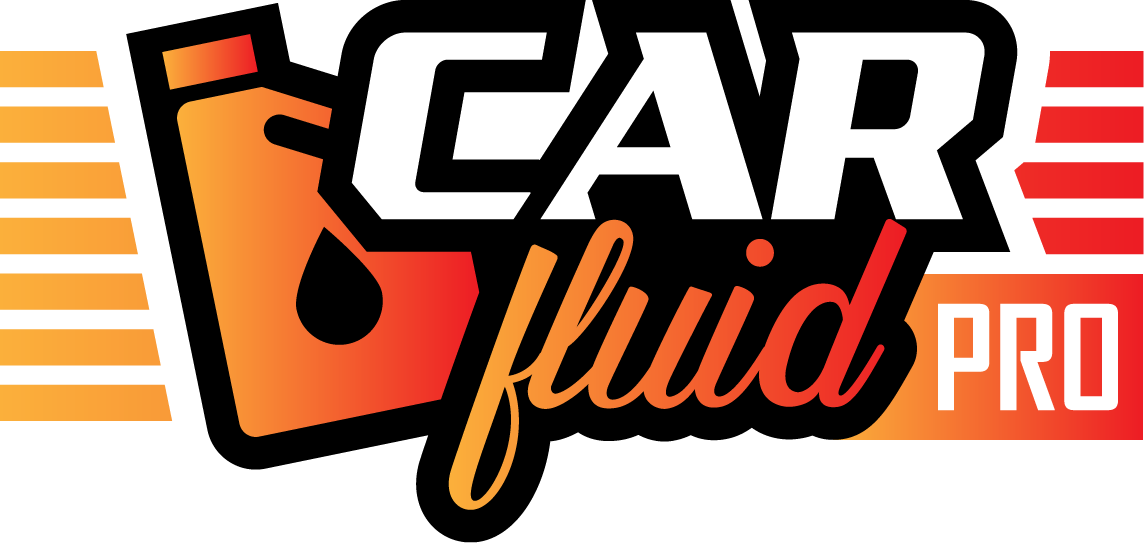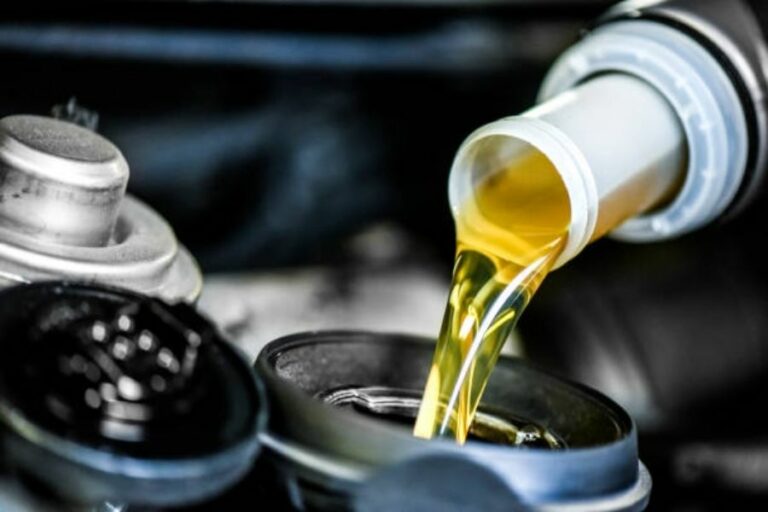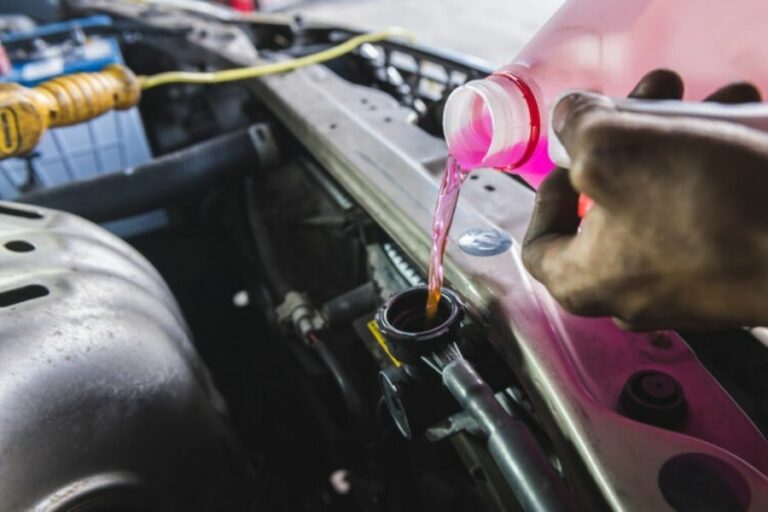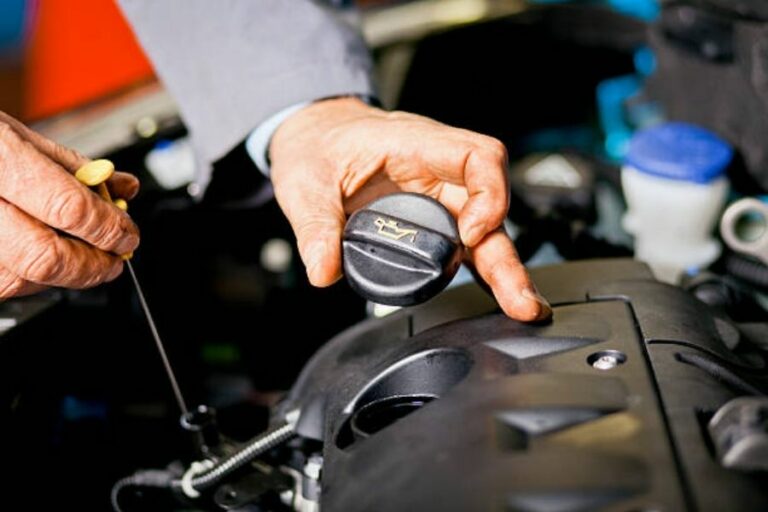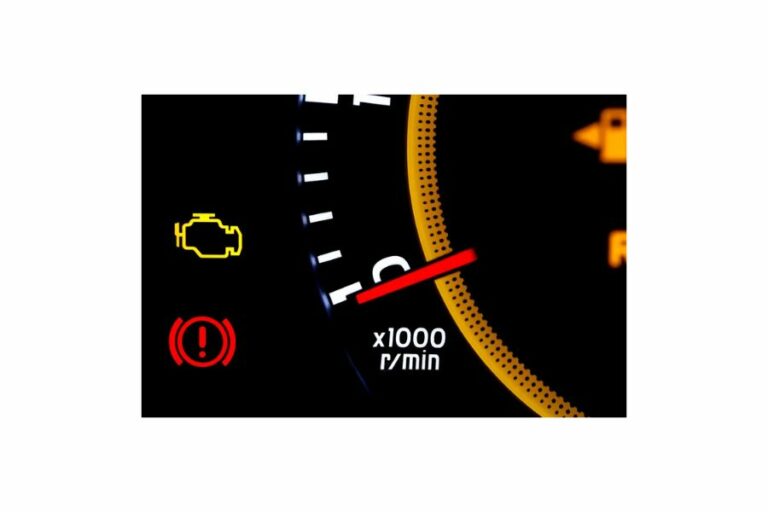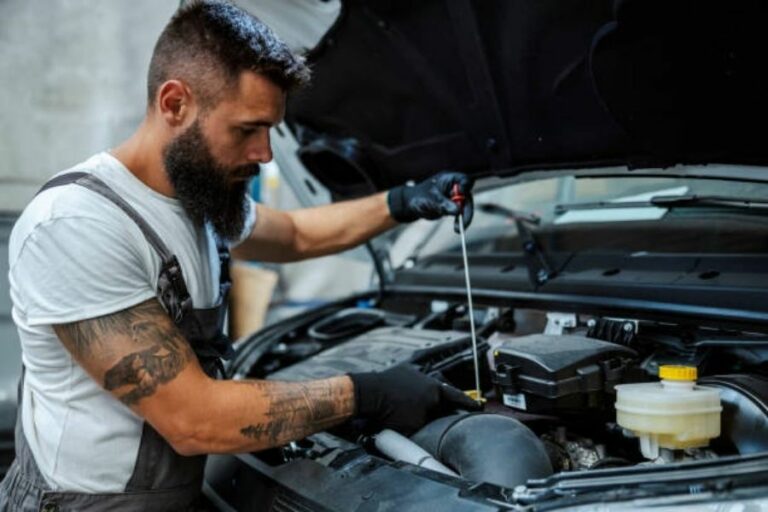Car Starts With Starter Fluid Then Dies
When you turn the key in your car’s ignition, you expect it to start. But sometimes, it just doesn’t happen. If your car starts with starter fluid then dies, there are a few possible explanations.
The most common reason is that the fuel isn’t reaching the engine. This can be due to a clogged fuel filter or line, a failed fuel pump, or even an issue with the carburetor. Another possibility is that there’s an electrical problem preventing the spark plugs from igniting the mixture of air and fuel in the cylinders.
This could be caused by a faulty ignition coil, distributor cap, or rotor.
If your car starts with starter fluid then dies, it’s likely that your engine is not getting enough fuel. This can be caused by a number of things, including a clogged fuel filter or a problem with the fuel pump. If you suspect that your car is not getting enough fuel, check the fuel filter and/or have the fuel system checked by a mechanic.
Can Starter Fluid Damage Your Car?
If you’re considering using starter fluid to get your car’s engine going, you might be wondering if it could do any damage. The short answer is yes, it can damage your car – but only if used incorrectly. Starter fluid is designed to be used in small doses, and only when absolutely necessary.
When overused or misused, it can cause corrosion and other problems in your engine. So, if you do need to use a starter fluid, make sure to follow the instructions carefully and don’t overdo it. Used correctly, however, starter fluid should pose no risk to your car.
How Do I Check My Fuel Pump With Starter Fluid?
If your car isn’t starting, one possible cause could be a faulty fuel pump. While there are other ways to test for a faulty fuel pump, using starter fluid is one of the quickest and easiest methods. Here’s how to do it:
1. Remove the cap from the throttle body and spray some starter fluid into the opening. 2. Have someone try to start the car while you watch the throttle body. If the engine starts and then dies immediately, that means your fuel pump is not working properly.
Will Clogged Injectors Cause a No Start?
If your vehicle has clogged injectors, it may not start. The reason for this is that the clogged injectors can prevent fuel from reaching the engine, which is necessary for starting the vehicle. If you have clogged injectors and your vehicle doesn’t start, you will need to have them cleaned or replaced in order to get your vehicle running again.
What Sensors Can Cause a Car Not to Start?
There are a few sensors that can cause a car not to start. One is the crankshaft sensor, which tells the computer when the engine is turning over. If this sensor isn’t working properly, the computer won’t know when to inject fuel into the cylinders and the engine won’t start.
Another possibility is a problem with the oxygen sensor. This sensor monitors the air/fuel mixture and if it’s not working correctly, the engine will run lean (too much air and not enough fuel) and won’t start. Finally, there could be an issue with the mass airflow sensor.
This sensor measures how much air is coming into the engine and if it’s not working right, again, too much air and not enough fuel will enter the cylinders and prevent starting.
Pressure Washer Starts With Starter Fluid Then Dies
If your pressure washer starts with starter fluid then dies, there are a few things that could be happening. First, check to see if the spark plug is working. If it isn’t, then you’ll need to replace it.
Next, check the air filter to see if it’s clean. If it’s dirty, then clean or replace it. Finally, check the fuel line to make sure there aren’t any leaks.
If there are, then repair or replace the fuel line.
Can a Fuel Injector Stop a Car from Starting
When your car’s engine is cranking but not starting, it could be due to a problem with the fuel injectors. Fuel injectors are responsible for delivering fuel to the engine’s cylinders, and if they are not working properly, the engine will not start. There are a few signs that your fuel injectors may be to blame for your car not starting:
1. The engine is cranking but won’t start – This is usually the first sign that there may be an issue with the fuel injectors. If you turn the key and the engine just cranks but doesn’t actually start, it’s possible that fuel isn’t reaching the cylinders. 2. The engine starts but then dies – If the engine starts and then quickly dies, it could be because the fuel injectors are not delivering enough fuel to keep the engine running.
3. The car is hard to start – If it takes longer than usual to get your car’s engine started, or if you have to crank it several times before it finally starts, this could also be a sign of faulty fuel injectors. If you suspect that your car’s no-start problem is due to bad fuel injectors, there are a few things you can do:
1. Check the fuses – The first thing you should do is check all of the fuses related to the fuel system.
If any of them are blown, replace them and see if that fixes the problem.
2. Clean or replace dirty/clogged injectors – Over time, dirt and debris can build up in your car’s fuel injectors and cause them to become clogged. This can prevent proper fuel delivery and cause Starting problems.
You can try cleaning the injectors to see if that helps improve performance, or you can replace them entirely with new ones.
Lawn Mower Starts With Starter Fluid Then Dies
If you’re having trouble getting your lawn mower to start, you may be tempted to use starter fluid. However, using starter fluid is not a good idea and can actually damage your engine. Here’s why:
When you use a starter fluid, the chemicals in the fluid vaporize and are drawn into the engine. These chemicals can cause corrosion and wear on the engine parts, which can lead to serious problems down the road. In addition, starter fluid is highly flammable, so there’s a risk of fire if it leaks onto hot engine parts.
If your lawn mower won’t start, it’s best to troubleshoot the problem and fix it rather than resort to starter fluid. Chances are, there’s a simple issue that can be easily fixed. For example, if the spark plug is dirty or damaged, replacing it may do the trick.
Or, if the air filter is clogged, cleaning or replacing it may get your mower running again.
Starter Fluid to Test Fuel Pump
If your car is having trouble starting, it might be due to a problem with the fuel pump. One way to test if the fuel pump is working properly is to use starter fluid. Starter fluid is available at most auto parts stores.
It’s a clear, oily liquid that helps start engines by providing a burst of extra fuel. To use starter fluid to test your fuel pump: 1. Open the hood and locate the engine’s air intake.
This is usually on the side of the engine near the top. 2. Remove the cap from the air intake and unscrew the small metal tube that leads into it. This will give you access to the engine’s carburetor.
3. Insert one end of a length of clear tubing into the carburetor and place the other end in a container (this will catch any excess fluid). Pour about half an ounce of starter fluid into the carburetor. If you have an older car with a distributor-type ignition system, pour about double that amount into each spark plug hole instead (don’t forget to put something over each hole so none drips down onto hot engine parts!).
Newer cars with electronic ignition don’t need as much starter fluid poured in – just enough to wet down all surfaces inside the carburetor or throttle body should do it. Check your owner’s manual for specific instructions on where and how much starter fluid to use for testing purposes on your particular model of vehicle you’re unsure of – better too little than too much! 4..
Replace everything and try starting the engine now – if it starts right up easily without hesitating or sputtering, then chances are good that there was just enough air in The system to make it run lean temporarily and flooding it with some extra gas in the form of starter fluid has helped correctthe mixture longenough to get it going again. If it still acts like it’s having difficulty starting, however, then you may have a more serious fuel pump issue on your hands.
Carbureted Engine Only Starts With Starting Fluid
If your carbureted engine only starts with starting fluid, there are a few potential causes. First, check the choke to see if it’s stuck in the “on” position. If it is, simply pushes the knob in to disengage it.
Another possibility is that the fuel line is clogged or blocked somehow. This can happen if the gas tank has been allowed to go completely dry – any sediment in the bottom of the tank can get sucked up into the fuel line and block it. The fix for this is to simply flush out the fuel line by running some fresh gas through it.
Finally, it could be that the carburetor itself is dirty or gummed up. This is a more difficult problem to fix, but luckily there are lots of great tutorials online for how to clean a carburetor.
Can You Use Starter Fluid on a Fuel Injected Engine
If your car has a carburetor, you can use starter fluid to get it going. However, if your car has fuel injection, you cannot use starter fluid. Starter fluid is petroleum based and will damage the seals in your fuel injectors.
Car Carburetor Only Starts With Starting Fluid
If your car’s carburetor only starts with starting fluid, there are a few potential issues that could be the cause. First, it’s possible that the carburetor is simply dirty and needs to be cleaned. This is a relatively easy fix that can be done at home with some basic cleaning supplies.
Another possibility is that the carburetor float is stuck in the closed position, preventing fuel from entering the engine. This issue is slightly more difficult to fix, but still doable if you’re comfortable working on your car’s engine. If neither of these solutions works, it’s likely that you have a more serious problem with your carburetor or engine and will need to take your car to a mechanic for diagnosis and repair.
Diesel Engine Only Starts With Starting Fluid
If your diesel engine won’t start, one possible cause is that the fuel isn’t getting to the engine. This can be due to a number of factors, including a clogged fuel filter or a problem with the fuel pump. If you suspect that the fuel isn’t getting to the engine, one way to try and start it is by using starting fluid.
Starting fluid is a volatile liquid that helps get engines started by providing a burst of energy to the combustion process. It’s also known as ether or carburetor starting fluid. Starting fluid is generally used for gas-powered engines, but it can also be used on diesel engines in certain situations.
If you’re going to use starting fluid on your diesel engine, make sure you follow the instructions on the can carefully. You don’t want to overdo it, as too much starting fluid can damage an engine.https://www.youtube.com/embed/aQl74MoKr5I
Conclusion
If your car starts with starter fluid then dies, it could be due to a few different things. The most common reason is that the fuel isn’t reaching the engine. This can be due to a clogged fuel filter, a bad fuel pump, or even a faulty ignition system.
If you’ve ruled out these possibilities, it’s possible that there’s an issue with the carburetor or intake manifold. Whatever the cause, it’s important to get your car checked out by a mechanic so they can diagnose and fix the problem.
